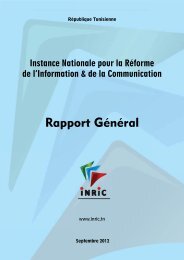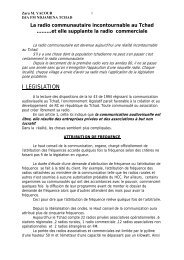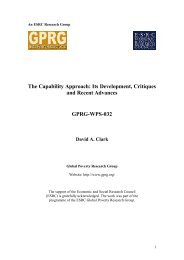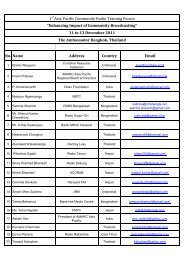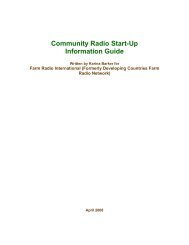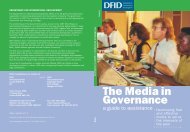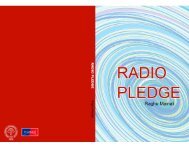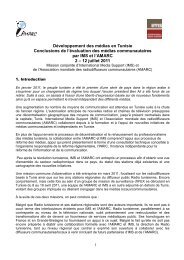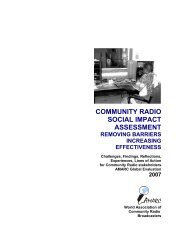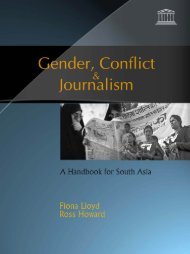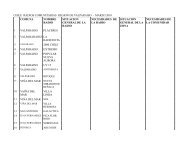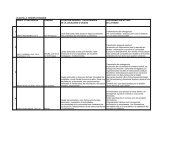Women's Empowerment and Good Governance Through - amarc
Women's Empowerment and Good Governance Through - amarc
Women's Empowerment and Good Governance Through - amarc
You also want an ePaper? Increase the reach of your titles
YUMPU automatically turns print PDFs into web optimized ePapers that Google loves.
115<br />
Best Experiences for an Action Research Process<br />
tial, Radio Santo Domingo, Radio Los Andes <strong>and</strong> the Asociación de Comunicadores Sociales<br />
Cal<strong>and</strong>ria).<br />
The project had two main lines of action: first, the strengthening of women’s <strong>and</strong> youth’s organizational<br />
abilities for citizen participation <strong>and</strong> vigilance, as well as the design of advocacy<br />
strategies; <strong>and</strong> second, an attempt to encourage joint work between the organizations <strong>and</strong><br />
communications media to increase visibility <strong>and</strong> public advocacy of public policy proposals, as<br />
well as consciousness-raising <strong>and</strong> promotion of citizen participation through the strengthening<br />
of information services <strong>and</strong> the opening up of public debate. The project also sought to work<br />
with local governments in institutional capacity building in order to improve the policies <strong>and</strong><br />
mechanisms of transparency <strong>and</strong> access to public information for citizen participation <strong>and</strong><br />
monitoring.<br />
The concrete action was to train <strong>and</strong> accompany more than 300 women leaders during their<br />
participation in the petition for a Participative Budget. This mechanism allowed organizations<br />
to present proposals <strong>and</strong> projects through which they participated in decision-making on resources<br />
allocation in the budget <strong>and</strong> in its implementation at local, provincial <strong>and</strong> regional levels.<br />
The work of the CNR <strong>and</strong> of the participating radio stations <strong>and</strong> production centres began<br />
with training workshops for journalists from the network, since they would be in charge both of<br />
training the women leaders <strong>and</strong> of accompanying the process of reflecting on, choosing <strong>and</strong><br />
elaborating the proposals. Following this, trainings of organizations were centred on internal<br />
communication tools <strong>and</strong> conflict resolution, laws for participation <strong>and</strong> gender <strong>and</strong> rights, as<br />
well as on technical aspects such as drawing up work plans, advocacy <strong>and</strong> accountability of<br />
local government management.<br />
Radio <strong>and</strong> journalists have played a very important role in the accompaniment process, providing<br />
the organizations with the tools for political advocacy work, that is, convincing the authorities<br />
to receive the proposals presented by the organizations. Radio stations also committed<br />
themselves to media advocacy work through special programs, information <strong>and</strong> consciousness-raising<br />
campaigns <strong>and</strong> the organization of fora, debates <strong>and</strong> citizen festivals to inform<br />
the population about the participative process, to make known the proposals worked on by the<br />
organizations <strong>and</strong>, above all, to find out the opinion of the people on local development <strong>and</strong><br />
on the proposals.



